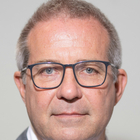The Current Column
Global norms for development cooperation
On the way to the 2nd UN Conference on South-South Cooperation
Esteves, Paulo / Stephan KlingebielThe Current Column (2018)
Bonn: German Development Institute / Deutsches Institut für Entwicklungspolitik (DIE), The Current Column of 12 September 2018
Bonn, 12 September 2018. It is easy to agree on the need for collective action to tackle the consequences of climate change, protracted violent conflicts and growing inequality, as well as to achieve the internationally agreed upon Sustainable Development Goals (SDGs). However, these high ambitions are facing a nationalist siege against multilateral institutions; fundamental transformations are occurring, driven by the emerging “multiplex World Order” (Amitav Acharya) in which a number of key actors interact in different ways. Among the many international systems affected by these changes, development cooperation is a key policy area. We have not reached a global approach for development cooperation. Basically, there are two major sub-systems. First, the long predominant system of development cooperation provided by OECD countries: Official Development Assistance (ODA). Second, a heterogeneous set of practices led by rising (super)powers identified under the South-South Cooperation (SSC) umbrella. Neither group nor development approach is entirely fixed or stable. On the contrary, development cooperation is a decentralised policy area in which different principles and practices are increasingly intertwined. For example, the Development Assistance Committee (DAC) of the OECD includes the Republic of Korea – a country formerly of the Global South. Different understandings of development cooperation are contested in international development debates. For instance, the Global Partnership for Effective Development Cooperation (GPEDC) is intended to be the main platform for actors on aid effectiveness topics, but it is not a global platform since major actors like Brazil, China and India are not participants. SSC is organized and defined to a limited extent. IBSA, a club governance format of India, Brazil and South Africa, has recently provided a definition of SSC. While emphasizing the principles of “respect for national sovereignty; national ownership and independence; equality; non-conditionality; non-interference in domestic affairs; and mutual benefit”, IBSA partners claim that “SSC is completely different from the North-South/donor-donee cooperation, and that ODA templates are not a good basis for SSC”. Nevertheless, a clearly defined group of SSC providers and a jointly shared approach are not yet available. For example, Rwanda’s support for the Presidency of Benin is quite outside of the current SSC mainstream discourse of SCC providers coming from middle-income countries. Framing the agenda for BAPA+40 Based on the “Buenos Aires Plan of Action for Promoting and Implementing Technical Cooperation among Developing Countries” adopted in 1978, the 2nd High-Level United Nations Conference on South-South Cooperation (this new Buenos Aires Plan of Action conference is abbreviated as BAPA+40) will take place in March 2019 in Buenos Aires. BAPA+40 will be the main event on SSC and triangular cooperation; the event itself as well as the preparation for it will focus debates in several ways. First, as BAPA+40 will be a multilateral conference under the United Nations, it will hold much legitimacy in dealing with SSC. Jointly agreed norms and standards will be a major improvement on the often-confusing debates about SSC. The conference is the ideal place to broaden a consensus on a definition of SSC among SSC providers, and between SSC providers and beneficiaries. Thus, BAPA+40 could and should be the place to decide on a clear definition of SSC. Second, as a UN Conference, BAPA+40 is the most suitable venue to revisit the issue of international responsibility. As the lines between North and South have blurred, international responsibility has become indistinct. While the BAPA+40 should emphasize the unique responsibility of developed countries (such as the 0.7% ODA to GNI commitment), it should also tackle the issue of differentiation. The conference will be an opportunity to advance the principle of concentric differentiation, also known as CBDR (common but differentiated responsibilities) 2.0. Third, the BAPA+40 preparation process is a good opportunity to systematise existing impact assessment practices among South-South Cooperation Partners (SSCP) and reach a broader agreement about common criteria for assessing SSC. Fourth, as the BAPA+40 Conference will gather DAC donors and SSCP, it should move beyond existing models of triangular cooperation – which often stress the influence on emerging powers – towards a horizontal partnership driven by developmental goals and oriented towards knowledge sharing. Triangular cooperation has the potential to use multi-stakeholder approaches beyond the model of an SSC provider, an SSCP and an OECD donor. A global set of norms for development cooperation so far does not exist; BAPA+40 is a crucial opportunity to identify common ground for an emerging consensus on SSC.
Paulo Esteves is an associate professor at the International Relations Institute (Pontifical Catholic University of Rio de Janeiro), the director of the BRICS Policy Center, a senior research fellow at the Institute of Advanced Sustainability Studies and a fellow at Brazil’s Public Administration School (ENAP). Stephan Klingebiel is Co-Chair of the research programme “International and Transnational Cooperation” at the German Development Institute / Deutsches Institut für Entwicklungspolitik (DIE). He is also Senior Lecturer at the University of Marburg and a regular visiting professor at Stanford University.

